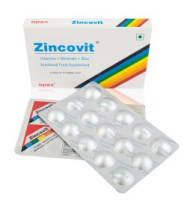NOTICE: unsafe with : Alcohol
USED FOR:
Hypertension
Heart failure
Chest pain (Angina)
COMPOSITION:
Olmesartan (20mg)
Amlodipine (5mg)
Hydrochlorothiazide (12.5mg)
Therapeutic Uses:
cardiac

CAUTION
Taking Hydrochlorothiazide with alcohol may have additive effects in lowering blood pressure. You may experience headache, dizziness, lightheadedness, fainting, and/or changes in pulse or heart rate.

WEIGH RISKS VS BENEFITS
Olmin AH 20 mg/5 mg/12.5 mg Tablet is unsafe to use during pregnancy.There is positive evidence of human fetal risk, but the benefits from use in pregnant women may be acceptable despite the risk, for example in life-threatening situations. Please consult your doctor.

Olmin AH 20 mg/5 mg/12.5 mg Tablet is probably safe to use during lactation. Limited human data suggests that the drug does not represent a significant risk to the baby.

Do not drive unless you are feeling well.Olmin AH 20 mg/5 mg/12.5 mg Tablet may cause side effects such as dizziness, headaches, nausea or tiredness, all of which could affect your ability to concentrate and drive.

Olmin AH 20 mg/5 mg/12.5 mg Tablet should be used with caution in patients with severe kidney disease. Dose adjustment of Olmin AH 20 mg/5 mg/12.5 mg Tablet may be needed. Please consult your doctor.Use of Olmin AH 20 mg/5 mg/12.5 mg Tablet is not recommended in patients with severe kidney disease.

CAUTION
Olmin AH 20 mg/5 mg/12.5 mg Tablet should be used with caution in patients with liver disease. Dose adjustment of Olmin AH 20 mg/5 mg/12.5 mg Tablet may be needed. Please consult your doctor.
Uses of Olmesartan
Olmesartan is used in the treatment of hypertension and heart failure.Decreasing high blood pressure lowers the risk of heart attack and stroke.
How to use Olmesartan
Take this medicine in the dose and duration as advised by your doctor. Swallow it as a whole. Do not chew, crush or break it. Olmin AH 20 mg/5 mg/12.5 mg Tablet may be taken with or without food, but it is better to take it at a fixed time.
How Olmin AH 20 mg/5 mg/12.5 mg Tablet works
Olmesartan is an angiotensin receptor blocker (ARB). It works by blocking the hormone angiotensin thereby relaxing blood vessels, allowing the blood to flow more smoothly and the heart to pump more efficiently.
Common Dizziness, Back pain, Sinus inflammation, Increased potassium level in blood.
Expert advice for Olmesartan
Olmesartan can be taken with or without food but preferably be taken at the same time of the day. It is best to take the first dose before bed to reduce symptomatic hypotension. Olmesartan may cause the level of potassium in blood to go up. Avoid taking potassium supplements and potassium-rich foods such as banana and broccoli. Inform your doctor immediately if you have rapid swelling of the lips, tongue, and throat that may affect breathing. Inform your doctor if you have ever been diagnosed with kidney or liver problems. Inform your doctor if you are pregnant or planning to conceive or breastfeeding.
Q. What is Olmesartan medoxomil?
Olmesartan medoxomil is available as olmezest or Benicar is an angiotensin II receptor blocker. It is not beta blocker or ACE inhibitor
Q. Is olmesartan better than telmisartan or losartan?
No, the effects of olmesartan, telmisartan or losartan are similar but may vary upon individual response
Q. Is Olmesartan a blood thinner / statin?
No, Olmesartan decreases the pressure in the blood vessels and increases the amount of fluid removed from the blood by the kidneys
Q. Is Olmesartan safe?
Olmesartan is safe if used at prescribed doses for the prescribed duration as advised by your doctor
Q. Does Olmesartan cause impotence?
No, Olmesartan does not cause impotence.
Uses of Amlodipine
Amlodipine is used in the treatment of hypertension and chest pain (Angina).
How to use Amlodipine
Take this medicine in the dose and duration as advised by your doctor. Swallow it as a whole. Do not chew, crush or break it. Olmin AH 20 mg/5 mg/12.5 mg Tablet may be taken with or without food, but it is better to take it at a fixed time.
How Olmin AH 20 mg/5 mg/12.5 mg Tablet works
Amlodipine is a calcium channel blocker. It works by relaxing blood vessels which makes the heart more efficient at pumping blood throughout the body.
Common Fatigue, Ankle swelling, Sleepiness, Flushing (sense of warmth in the face, ears, neck and trunk), Headache, Nausea, Dizziness, Palpitations, Edema, Abdominal pain.
Expert advice for Amlodipine
It is very common to have dizziness, lightheadedness, swelling ankles/feet, flushing, or a headache as a side effect. To lower your risk of dizziness and lightheadedness, get up slowly when rising from a sitting or lying position. Inform your doctor if your symptoms do not improve or if it worsens (for example, your blood pressure readings remain high or increase, chest pain continues or worsens). Inform your doctor immediately if any of these serious side effects occur: fast/irregular/pounding heartbeat, fainting. Use this medication regularly to get the most benefit from it. To help you remember, take it at the same time each day. It is important to continue taking this medication even if you feel well. If you miss a dose, take it as soon as you remember. If it is near the time for the next dose, skip the missed dose and resume your usual dosing schedule. Do not double the dose.
Q. What is Amlodipine used for?
Amlodipine is indicated for the treatment of high blood pressure (hypertension), angina pectoris (pain in the chest caused by blockages in the arteries leading to the heart) or chest pain classed as vasospastic angina pectoris (or Prinzmetal’s angina).
Q. Is Amlodipine a calcium channel blocker and how does it works?
Amlodipine is a calcium channel blocker. In patients with high blood pressure, it works by relaxing blood vessels, so that blood passes through them more easily. In patients with angina, it works by improving blood supply to the heart muscle, which then receives more oxygen, and hence, prevents chest pain. It does not provide immediate relief of chest pain from angina.
Q. Is Amlodipine safe?
Amlodipine is safe if used at prescribed doses for the prescribed duration as advised by your doctor.
Q. Can I take Amlodipine at night?
Amlodipine can be taken at night. You should take Amlodipine at the same time each day with a glass of water.
Q. Can I take Amlodipine and aspirin?
Amlodipine can be taken with aspirin. No drug-drug interactions have been reported between the two. However, interactions can occur. Please consult your doctor before taking the two medicines together.
Q. Can I take Amlodipine with sildenafil?
Both Amlodipine and sildenafil cause a lowering the blood pressure. So, taking the two medicines together could be harmful. Please consult your doctor before taking them together.
Q. Is Amlodipine a beta blocker?
Amlodipine is not a beta blocker. It belongs to a group of medicines called calcium channel blockers.
Q. Is Amlodipine safe for kidneys?
Amlodipine is not known to damage kidneys. However, Amlodipine can cause urinary disorders like difficulty in passing urine, increased the need to urinate at night, increased number of times of passing urine as an uncommon side effect.
Q. Is Amlodipine a diuretic?
Amlodipine is not a diuretic. It belongs to a group of medicines called calcium channel blockers.
Q. Is Amlodipine a blood thinner?
Amlodipine is not a blood thinner. It belongs to a group of medicines called calcium channel blockers.
Q. Is Amlodipine a statin?
Amlodipine is not a statin. It belongs to a group of medicines called calcium channel blockers.
Q. Is Amlodipine an angiotensin converting enzyme (ACE) inhibitor?
Amlodipine is not an angiotensin converting enzyme (ACE) inhibitor. It belongs to a group of medicines called calcium channel blockers.
Q. Does Amlodipine cause tachycardia?
Amlodipine can rarely cause changes in heart rate, which can be an increase (tachycardia) or a decrease in heart rate (bradycardia) or an irregular heart rate. Please consult your doctor if you experience any changes in your heart rate while taking Amlodipine.
Q. Does Amlodipine cause pedal edema (swelling of the ankles)?
Amlodipine can cause pedal edema (swelling of the ankles). Please consult your doctor if you have pedal edema while taking Amlodipine.
Q. Does Amlodipine increase creatinine?
Amlodipine has not been reported to increase creatinine levels. Please consult your doctor if you have increased creatinine levels while taking Amlodipine as it requires proper diagnosis and management.
Q. Does Amlodipine cause erectile dysfunction?
Erectile dysfunction is an uncommon side effect of Amlodipine. Please consult your doctor if you experience erectile dysfunction when you are taking Amlodipine.
Q. Does Amlodipine cause bradycardia (decreased heart rate)?
Amlodipine can rarely cause changes in heart rate, which can be an increase (tachycardia) or a decrease in heart rate (bradycardia) or an irregular heart rate. Please consult your doctor if you experience any changes in your heart rate while taking Amlodipine.
Q. Does Amlodipine cause weight gain?
Amlodipine can cause changes in weight, it can either cause weight gain or weight loss. However, these changes are very rare. Please consult your doctor if you experience a change in weight while taking Amlodipine.
Q. Does Amlodipine cause joint pain (arthralgia)?
Amlodipine can cause joint pain (arthralgia). Please consult your doctor if you experience excessive joint pains while taking Amlodipine.
Q. Does Amlodipine cause cough?
Amlodipine can cause cough, but it is a very rare side effect. Please consult your doctor if you experience excessive coughing while taking Amlodipine.
Q. Does Amlodipine cause dry mouth?
Amlodipine can cause dry mouth as an uncommon side effect. Please consult your doctor if you experience excessive dryness of mouth after taking Amlodipine.
Q. Can I take Amlodipine without food?
Amlodipine can be taken before or after food and drinks. Amlodipine should be taken same time each day with a glass of water. Do not take Amlodipine with grapefruit juice.
Q. Can I take Amlodipine with milk?
There are no specific recommendations on the use of Amlodipine with milk. However, it can be taken before or after food and drinks.
Q. Can I take Amlodipine with lisinopril?
Amlodipine can be taken with lisinopril. No drug-drug interactions have been reported between the two. However, as both the medicines have a blood pressure lowering effect, interactions can occur. Please consult your doctor before taking the two medicines together.
Q. Can I take Amlodipine with ibuprofen?
Amlodipine can be taken with ibuprofen. No drug-drug interactions have been reported between the two. However, interactions may occur. Please consult your doctor before taking the two medicines together.
Q. Can I take Amlodipine with metoprolol?
Amlodipine and metoprolol both have a blood pressure lowering effect. So, taking both the medicines together can be harmful. Please consult your doctor before taking the two medicines together.
Q. Can I take Amlodipine with losartan?
Amlodipine and losartan both have a blood pressure lowering effect. So, taking both the medicines together can be harmful. Please consult your doctor before taking the two medicines together.
Q. Can I take Amlodipine with ramipril?
Amlodipine and ramipril both have a blood pressure lowering effect. So, taking both the medicines together can be harmful. Please consult your doctor before taking the two medicines together.
Q. Can I take Amlodipine with simvastatin?
Amlodipine can increase the levels of simvastatin, causing an increased tendency towards myopathy (muscle pain) and rhabdomyolysis (increased breakdown of muscle). The dose of simvastatin may need to be reduced when giving along with Amlodipine . Please consult your doctor.
Q. Can I take Amlodipine with atorvastatin?
Amlodipine can be taken with atorvastatin. No drug-drug interactions have been reported between the two. However, interactions may occur as interactions have been reported between simvastatin (belongs to the same class). Please consult your doctor before taking the two medicines together.
Q. Can the use of Amlodipine cause gout?
Amlodipine does not cause gout. It may cause joint pains (arthralgia). Please consult your doctor in case you have any signs and symptoms of gout as you may need treatment for the same.
Uses of Hydrochlorothiazide
Hydrochlorothiazide is used in hypertension and oedema.It treats oedema (fluid overload) associated with heart, liver, kidney or lung disease.
How to use Hydrochlorothiazide
Take this medicine in the dose and duration as advised by your doctor. Swallow it as a whole. Do not chew, crush or break it. Olmin AH 20 mg/5 mg/12.5 mg Tablet may be taken with or without food, but it is better to take it at a fixed time.
How Olmin AH 20 mg/5 mg/12.5 mg Tablet works
Hydrochlorothiazide is a thiazide diuretic. It lowers blood pressure and fluid retention in edema by removing the extra water and certain electrolytes from the body. Over time it also works by relaxing blood vessels and improving blood flow.
Common Headache, Nausea, Increased blood uric acid, Decreased potassium level in blood, Glucose intolerance, Altered blood lipids.
Expert advice for Hydrochlorothiazide
Hydrochlorothiazide helps lower blood pressure and also removes excess water from your body. Take it in the morning with breakfast to avoid getting up at night to urinate. May cause dizziness in the initial days of treatment. Monitor your blood pressure after starting Hydrochlorothiazide, and notify your doctor if it hasn't gone down. Notify your doctor if you experience dizziness, tiredness, or muscle weakness that doesn't go away. Requires routine blood tests to monitor your kidney function.
Q. Hydrochlorothiazide is a diuretic,which increases the excretion of urine?
Patients should follow the advice of the doctor regarding its use
Q. Is Hydrochlorothiazide a statin/ opiate?
No.It is the derivative of chlorothiazide
Q. Is Hydrochlorothiazide bad for your kidneys?
No.Hydrochlorthiazide is a safe drug at prescribed dose by your doctor. Consult your doctor if you have kidney disease and follow the advice of the doctor regarding its use
Q. Can I take hydrochlorothiazide with lisinopril/ ibuprofen/ synthroid/ aspirin/ potassium/ phentermine/ losartan/ naproxen/ magnesium/ vitamins?
Taking other medicines may alter the effects of hydrochlorothiazide. Always consult your doctor for the change of dose regimen or an alternative drug of choice that may strictly be required
Q. Does hydrochlorothiazide cause diabetes/ erectile dysfunction/ weight loss/ gout/ constipation/tinnitus/ potassium loss?
Hydrochlorothiazide causing these side effects is rare or uncommon. However, consult your doctor if you experience any of these side effects
Q. Does Hydrochlorothiazide have sulfa in it?
Yes.Hydrochlorothiazide has sulfa and it is chemically known as 6-chloro- 3, 4-dihydro-2 H-1, 2, 4-benzothiadiazine-7-sulfonamide 1, 1-dioxide
Q. Does Hydrochlorothiazide clean your system?
No.Hydrochlorothiazide reduces extra fluid in the body.
Instanz Life Sciences Pvt Ltd
₹6.9/Tablet Out of stock


 Olmin AH 20 mg/5 mg/12.5 mg Tablet
Olmin AH 20 mg/5 mg/12.5 mg Tablet  Bookmark
Bookmark





















